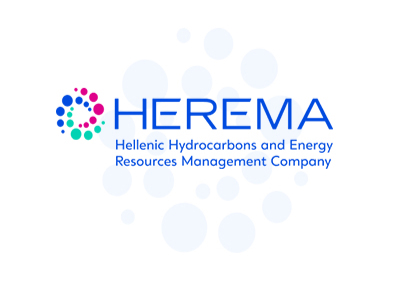PRESS RELEASE
Aristofanis Stefatos: The opportunity to gain clarity about Greece’s natural gas deposits is too large to lose
The current situation – with benchmark European gas prices having jumped over 250% since the start of the year – is once again bringing to the forefront the crucial role natural gas is set to play in the coming years (if not decades) as a bridging fuel in the energy transition. This makes it imperative for Greece to gain clarity about its own potential gas deposits, stressed the CEO of the Hellenic Hydrocarbon Resources Management (HHRM), Aristofanis Stefatos, during a press event today.
According to Mr. Stefatos, “International demand for natural gas is expected to increase over a 20-year horizon due to its role as a bridging fuel in the transition to RES-based energy systems. This is especially true for Greece, given the fact that our current National Energy and Climate Plan foresees a 40% increase in natural gas demand. It is therefore clear that gas is called upon to play a critical stabilizing role in achieving CO2 emission reduction targets. Therefore, its use does not stand in contradiction with RES targets. It’s not an ‘either or’ scenario. Natural gas is an important partner in the energy transition.”
Having said that, today it is perhaps more important than ever that we highlight the benefits that the monetization of Greece’s potential gas reserves could bring about for the country. In fact, the development of Greece’s upstream natural gas industry would contribute to advance the green transition and boost energy security, while presenting significant financial and geostrategic opportunities.”
“The data we have collected – added Mr. Stefatos – is encouraging, as our studies (based on the concession Lessees’ initial findings) show that the potential value of Greece’s hydrocarbon deposits is circa 250 billion euros. At today’s energy prices, this is a conservative estimate! Prestigious energy companies such as TotalEnergies and ExxonMobil came to Greece not driven by speculation but based on realistic prospects for large discoveries. However, we cannot be certain of the value of Greece’s hydrocarbon assets until we obtain clarity. We can achieve this by enabling investors to undertake the necessary seismic and geological studies, which would be done at no cost to the Greek state. If we are sitting on top of 250 billion euros worth of natural gas reserves, shouldn’t we at least know?”
When asked about the possibility that the “window of opportunity” for the development of Greece’s potential deposits is closed, Mr. Stefatos replied that “as I already mentioned, the demand for natural gas will increase in the coming years. And although no one can predict whether we are talking about a 15- or 30-year horizon, the development of alternative technologies, such as hydrogen, that largely ‘pass’ through gas infrastructure ensure the viability of the relevant activities and the required investments. This means there is still time for Greece to develop its upstream natural gas industry, especially if we take into account that it took less than 2.5 years to commence the commercialization of Egypt’s Zohr field, upon completion of the relevant studies.”
Referring to international trends regarding the oil & gas industry, Mr. Stefatos noted that large energy groups are diversifying their portfolios, focusing on RES, new energy technologies such as hydrogen and carbon capture and storage, while also deepening their focus on natural gas. “We must not forget that the oil & gas industry has important synergies with many of these technologies. I would like to point out that 60% of the know-how employed in the development of offshore wind farms draws from the oil & gas industry, while hydrogen, for its part, can be developed and delivered leveraging pre-existing gas infrastructure. This means Greece can provide investors with a unique opportunity to monetize a resource that is in short supply, while, in tandem, also providing a potential opportunity for them to invest in the deployment of new energy technologies.”
Answering a question focused on HHRM’s next step in this new landscape, Mr. Stefatos underlined “There is no time to waste. We need to enable investors to undertake the necessary seismic and geological studies to understand where our deposits are located and how much they are worth, so that we can make informed decisions in terms of how to best monetize these tentative resources.”
Regarding the European Union’s view on the hydrocarbon sector, he noted that “up until the current crisis, the EU had a clear strategy that was not friendly towards the oil and gas industry. I believe, however, that current developments show there is room for adjustments towards a more conducive environment with respect to natural gas. We must claim and support this adjustment as it serves the public and national interest. “HHRM firmly believes that Greece offers a unique investment opportunity within the European Union for the joint and harmonious implementation of investments in renewables and natural gas,” concluded Mr. Stefatos.
